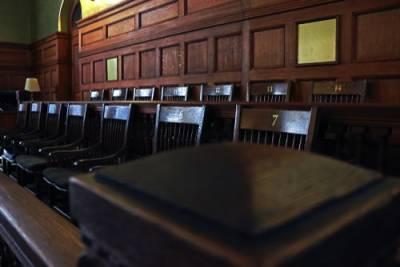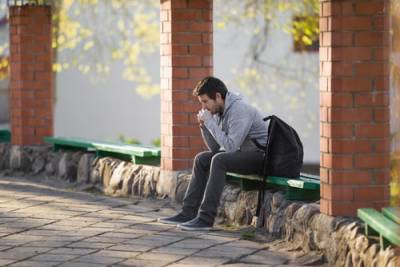Recent Blog Posts
Can Police Officers Perform Searches Because They Smell Marijuana?
 Encounters with police officers can be stressful. Whether a person is pulled over in a traffic stop, has an officer knock on the door of their home, or is approached by police in other situations, they may worry that if they say or do the wrong thing, they could be arrested or face criminal charges. If police officers perform a search of a person’s vehicle or other property, they may uncover evidence that may be used to pursue drug charges or other types of criminal charges. Due to concerns about police misconduct, a person may worry that these types of searches will provide officers with the opportunity to plant evidence that may be used against them in a criminal case. Fortunately, recent changes to the law and rulings by courts have limited police officers’ ability to perform searches based on claims that they smell marijuana.
Encounters with police officers can be stressful. Whether a person is pulled over in a traffic stop, has an officer knock on the door of their home, or is approached by police in other situations, they may worry that if they say or do the wrong thing, they could be arrested or face criminal charges. If police officers perform a search of a person’s vehicle or other property, they may uncover evidence that may be used to pursue drug charges or other types of criminal charges. Due to concerns about police misconduct, a person may worry that these types of searches will provide officers with the opportunity to plant evidence that may be used against them in a criminal case. Fortunately, recent changes to the law and rulings by courts have limited police officers’ ability to perform searches based on claims that they smell marijuana.
Marijuana Odor May Not Be a Valid Reason to Conduct a Warrantless Search
Can Criminal Convicts Be Required to Pay for the Costs of Incarceration?
 A criminal conviction can have many effects on a person’s life. While most people understand that a conviction can result in criminal consequences, such as the requirement to pay fines or serve time in prison, they may not be aware of the collateral consequences that can follow a person for years after they completed their sentence, and in some cases, for the rest of their lives. In many cases, these collateral consequences are related to a person’s criminal record, which may prevent them from obtaining employment, housing, education, or public benefits. However, one less-known issue that may affect convicts in Connecticut involves the state’s ability to take action to force a person to pay for some of the costs of their incarceration.
A criminal conviction can have many effects on a person’s life. While most people understand that a conviction can result in criminal consequences, such as the requirement to pay fines or serve time in prison, they may not be aware of the collateral consequences that can follow a person for years after they completed their sentence, and in some cases, for the rest of their lives. In many cases, these collateral consequences are related to a person’s criminal record, which may prevent them from obtaining employment, housing, education, or public benefits. However, one less-known issue that may affect convicts in Connecticut involves the state’s ability to take action to force a person to pay for some of the costs of their incarceration.
Collection Actions Against Former Inmates
A Connecticut law that was passed in 1995 allows the state to make a claim against a former inmate and recover the costs of the person’s incarceration. These types of collections may be performed when a person receives a “significant windfall,” which will generally include situations such as winning money through the lottery, receiving an inheritance, or receiving compensation in a personal injury case. The state may collect payments within 20 years after a person was released from prison, and it may recover up to 50 percent of the amount received in a windfall.
Supreme Court Cases May Address Illegal Searches and Confessions
 The United States Supreme Court receives thousands of requests each year to review cases that were decided in lower courts, including state supreme courts and federal appeals courts. While the Supreme Court only selects a limited number of cases to review, looking at the petitions that are filed with the court can provide an indication of the types of cases it may consider. Recently, several petitions have been filed that address the rights of defendants in criminal cases, and if the Supreme Court decides to hear these cases, its decisions may have significant effects on issues such as searches, surveillance, and confessions.
The United States Supreme Court receives thousands of requests each year to review cases that were decided in lower courts, including state supreme courts and federal appeals courts. While the Supreme Court only selects a limited number of cases to review, looking at the petitions that are filed with the court can provide an indication of the types of cases it may consider. Recently, several petitions have been filed that address the rights of defendants in criminal cases, and if the Supreme Court decides to hear these cases, its decisions may have significant effects on issues such as searches, surveillance, and confessions.
Potential Supreme Court Cases
-
Struve v. Iowa - This case involved a man who was pulled over after an officer observed him using a cell phone. While the man was not charged with violating the laws against texting or using an electronic device while driving, the officer observed methamphetamines in the back seat of his vehicle, and the man was arrested and convicted on drug possession charges. The man argued that he was subject to an illegal search because the officer pulled him over without the reasonable suspicion that he had violated the law, since it was not possible to tell whether he was texting while driving or using his phone for legal purposes, such as GPS navigation. The Iowa Supreme Court ruled that the officer used common sense when pulling the man over and that the traffic stop and subsequent search were legal. If the Supreme Court hears this case, its decision could affect people’s rights in situations where they are pulled over for traffic violations.
How Has the COVID-19 Pandemic Affected Jury Verdicts?
 COVID-19 has affected the lives of everyone in the United States in a variety of ways. People have been forced to make adjustments in multiple areas of their lives, and many people and organizations are working to return to normalcy while dealing with ongoing health concerns. These issues have also affected the court system, and courts were closed for a significant amount of time in 2020 and 2021 to protect people’s safety. While in-person trials have resumed, ongoing issues related to the pandemic have affected court proceedings and jury verdicts. Those who are involved in criminal trials or civil litigation (including personal injury cases) can make sure these issues are addressed correctly by working with an experienced attorney.
COVID-19 has affected the lives of everyone in the United States in a variety of ways. People have been forced to make adjustments in multiple areas of their lives, and many people and organizations are working to return to normalcy while dealing with ongoing health concerns. These issues have also affected the court system, and courts were closed for a significant amount of time in 2020 and 2021 to protect people’s safety. While in-person trials have resumed, ongoing issues related to the pandemic have affected court proceedings and jury verdicts. Those who are involved in criminal trials or civil litigation (including personal injury cases) can make sure these issues are addressed correctly by working with an experienced attorney.
Changes in Jury Makeup and Voting
The state of Connecticut has resumed jury trials as of June 1, 2021. To ensure that all participants in a trial, including jurors, judges, plaintiffs, defendants, witnesses, attorneys, and court officials, will be safe, multiple protective measures have been implemented. Personal protective equipment (PPE) will be provided to everyone who needs it. Courts will also provide face shields for witnesses, ensuring that jurors and attorneys will be able to observe their facial expressions as they provide testimony.
How Does Connecticut’s New Clean Slate Law Affect Criminal Convictions?
 When a person is convicted of criminal charges, they will face certain penalties. Depending on the nature of the offense, the person’s previous criminal record, and other factors, they may be sentenced to time in prison, required to pay fines, or face certain restrictions during a period of probation. However, there are a variety of other collateral consequences that can affect those who have been convicted of crimes. A criminal record can make it difficult or impossible for a person to find employment, housing, or education. To address this issue, the state of Connecticut recently passed a “clean slate” law that will allow some convicts’ records to be cleared once they have completed their sentences.
When a person is convicted of criminal charges, they will face certain penalties. Depending on the nature of the offense, the person’s previous criminal record, and other factors, they may be sentenced to time in prison, required to pay fines, or face certain restrictions during a period of probation. However, there are a variety of other collateral consequences that can affect those who have been convicted of crimes. A criminal record can make it difficult or impossible for a person to find employment, housing, or education. To address this issue, the state of Connecticut recently passed a “clean slate” law that will allow some convicts’ records to be cleared once they have completed their sentences.
Automatic Clearing of Records for Certain Crimes
Currently, convicts in Connecticut are able to clear their criminal records by applying for a pardon. Depending on their offense and whether any victims have an interest in the case, a person may be required to attend a hearing before the Board of Pardons and Paroles. The process of applying for a pardon can be complicated, and many convicts struggle to clear their records and move forward with their lives.
New Connecticut Law Addresses Pedestrian Safety and Dooring
 Everyone should be able to use the road safely, whether they are inside a motor vehicle, on foot, or using other forms of transportation. In recent years, the safety of bicyclists and pedestrians has been a concern due to an increase in the number of pedestrian and bicycle accidents. The state of Connecticut has attempted to address this issue by passing a new law that is meant to provide additional protection for people who are crossing the street or riding bicycles or other forms of transportation near parked vehicles. This law went into effect on October 1, 2021.
Everyone should be able to use the road safely, whether they are inside a motor vehicle, on foot, or using other forms of transportation. In recent years, the safety of bicyclists and pedestrians has been a concern due to an increase in the number of pedestrian and bicycle accidents. The state of Connecticut has attempted to address this issue by passing a new law that is meant to provide additional protection for people who are crossing the street or riding bicycles or other forms of transportation near parked vehicles. This law went into effect on October 1, 2021.
New Requirements for Yielding to Pedestrians
Connecticut drivers are required to yield to pedestrians who are crossing the road at a crosswalk. Previously, this requirement applied once a pedestrian had stepped off of a curb or entered a crosswalk. Under the new law, a pedestrian is considered to be crossing the road if they are within any portion of a crosswalk, if they have stepped to the edge of a curb and indicated their intent to cross the road by raising their hand or arm, or if they move any part of their body or an extension of their body into a crosswalk. An extension of a pedestrian’s body may include a cane, crutch, wheelchair, bicycle, stroller, or cart, as well as a dog that is on a leash or using a harness.
Will Connecticut Allow for Removals From the Sex Offender Registry?
 People who are convicted of criminal charges often struggle to reintegrate into society after they have served their sentences. This is especially true for those who are convicted of sexual assault or other sex crimes. In these cases, a person may be required to become a registered sex offender, and they will be placed in a public database that includes their photo and description, their address, and details about their offense. Registered sex offenders may have trouble finding employment and housing, and they may experience other issues that affect their reputation and personal relationships. To address this issue, the Connecticut Sentencing Commission is looking to create legislation that may allow some offenders to be removed from the sex offender registry.
People who are convicted of criminal charges often struggle to reintegrate into society after they have served their sentences. This is especially true for those who are convicted of sexual assault or other sex crimes. In these cases, a person may be required to become a registered sex offender, and they will be placed in a public database that includes their photo and description, their address, and details about their offense. Registered sex offenders may have trouble finding employment and housing, and they may experience other issues that affect their reputation and personal relationships. To address this issue, the Connecticut Sentencing Commission is looking to create legislation that may allow some offenders to be removed from the sex offender registry.
Potential Changes to the Sex Offender Registry
The Connecticut Sentencing Commission is an independent agency that researches and reviews the state’s criminal justice system and makes recommendations about potential reforms. The Commission’s Collateral Consequences subcommittee has been looking into the issue of the state’s sex offender registry, and it is hoping to create a proposal for legislation that may affect some offenders who face consequences due to being listed in the registry.
Addressing Campus Sexual Assault at the Beginning of the School Year
 The first few months of the school year are sometimes referred to as the "red zone" for sexual assaults on college campuses. More than 50 percent of campus sexual assaults occur during this time. There are a variety of reasons why more assaults may occur at the beginning of the school year, including the common use of alcohol by students as they enjoy living away from their parents’ homes. In 2021, this is an issue that may not only affect first-year students but also others who were unable to attend college in person over the past year due to the COVID-19 pandemic.
The first few months of the school year are sometimes referred to as the "red zone" for sexual assaults on college campuses. More than 50 percent of campus sexual assaults occur during this time. There are a variety of reasons why more assaults may occur at the beginning of the school year, including the common use of alcohol by students as they enjoy living away from their parents’ homes. In 2021, this is an issue that may not only affect first-year students but also others who were unable to attend college in person over the past year due to the COVID-19 pandemic.
Why Students May Commit Sexual Assault Without Realizing it
Attitudes about consent have changed in recent years. In the past, sexual assault prevention efforts were often focused on what victims could do to prevent being assaulted, such as being aware of their alcohol use, avoiding provocative outfits, or ensuring that a friend is close by. However, advocates have begun to focus on preventing assaults by ensuring that people obtain consent before engaging in sexual conduct.
States Take Action to Stop Police From Lying in Interrogations
 Advocates for criminal justice reform have called attention to a number of practices by police officers and prosecutors that can result in suspects being wrongfully convicted of criminal charges. The approach that is often taken by police officers when interrogating suspects is one issue that has affected people in many cases. Officers are allowed to lie to suspects and use other deceptive practices during interrogations, and this has led many people to be convicted based on false confessions. Fortunately, some states are beginning to pass laws meant to protect suspects from these techniques.
Advocates for criminal justice reform have called attention to a number of practices by police officers and prosecutors that can result in suspects being wrongfully convicted of criminal charges. The approach that is often taken by police officers when interrogating suspects is one issue that has affected people in many cases. Officers are allowed to lie to suspects and use other deceptive practices during interrogations, and this has led many people to be convicted based on false confessions. Fortunately, some states are beginning to pass laws meant to protect suspects from these techniques.
New Laws Prevent Police From Lying When Interrogating Minors
Since a Supreme Court ruling in 1969, police officers have been legally allowed to lie to suspects during interrogations. This ruling was based on a case where police officers had lied to a suspect, stating that someone else had confessed and implicated him in a crime. The court found that the fact that the officers had lied was not sufficient to make the suspect’s voluntary confession inadmissible. Unfortunately, this opened the door for all manner of deceptive practices by police officers.
Drunk Driving Monitoring Systems May Soon Be Required in U.S. Vehicles
 In Connecticut and many other states, people who have been convicted of driving under the influence (DUI) or related offenses such as vehicular manslaughter are required to have an ignition interlock device (IID) installed in their vehicle. This device requires a driver to give a breath sample, and it will prevent a vehicle from starting if the driver’s blood alcohol content (BAC) is above a certain level. These devices can be inconvenient for drivers, but many people believe that they are necessary to ensure that drivers who have violated drunk driving laws in the past will protect others’ safety. However, a new law may require that similar devices be used in many more vehicles, even for drivers with a clean driving record.
In Connecticut and many other states, people who have been convicted of driving under the influence (DUI) or related offenses such as vehicular manslaughter are required to have an ignition interlock device (IID) installed in their vehicle. This device requires a driver to give a breath sample, and it will prevent a vehicle from starting if the driver’s blood alcohol content (BAC) is above a certain level. These devices can be inconvenient for drivers, but many people believe that they are necessary to ensure that drivers who have violated drunk driving laws in the past will protect others’ safety. However, a new law may require that similar devices be used in many more vehicles, even for drivers with a clean driving record.
Infrastructure Bill Contains Provisions for Drunk Driving Monitoring Systems in New Vehicles
The Infrastructure Investment and Jobs Act, which is currently being considered in the U.S. Congress, includes provisions that would require all passenger vehicles manufactured after 2027 to be equipped with “advanced drunk and impaired driving prevention technology.” This is one of several types of automotive safety technology that the bill would mandate, and others include automatic braking and crash avoidance systems and systems meant to prevent leaving children unattended in hot cars.






